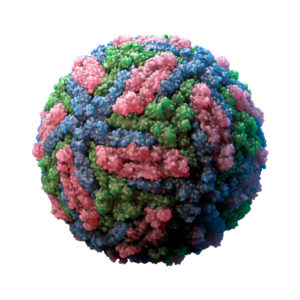Usutu Virus
The first human case of Usutu viral infection was identified in the Central African Republic in 1981. The first human cases to be documented in Europe, were in Italy in 2009. These European cases were also the first to exhibit neurological manifestation of the disease, as the only two previous cases in Africa exhibited fever, rash, and jaundice. This relatively unknown and emerging zoonotic virus highlights the importance of vector-borne disease surveillance for human health.
At The Native Antigen Company, we have developed recombinant Usutu NS1 proteins to support research into the disease and development of specific immunoassays.
Usutu Virus Background
Usutu virus (USUV) is an enveloped, positive-sense, single-stranded RNA virus that belongs to the genus Flavivirus. USUV is a member of the Japanese encephalitis sero-complex of the family Flaviridae and is related to West Nile virus. The Usutu virus is maintained in a cycle between birds, which are regarded as the primary reservoir and amplification host, in addition to ornithophilic mosquitoes. USUV has also been reported to infect humans, horses and bats, which act as incidental hosts (Ashraf, U. et al). Usutu virus is recognised as an emerging pathogen and has recently been isolated from the mosquito species, C. pipiens, raising concerns that the mosquito species may act as a bridge vector, enabling transmission of USUV to mammals (Pauli, G et al).
USUV was first identified in South Africa in 1959, but later emerged in Austria in 2001, spreading throughout Europe and the Asian continent to infect a wide variety of bird species. In Europe, circulating USUV causes severe neurological symptoms in birds and is responsible for significant numbers of deaths in bird populations, including blackbirds and great grey owls. Although USUV is recognised as an emerging pathogen, little is known about USUV pathogenesis in humans. Cases of human USUV infection are uncommon but significant neurological disorders, such as encephalitis and meningoencephalitis have been reported in immunocompromised and immunocompetent patients infected with USUV (Salinas, S. et al).
References
- Ashraf, U et al (2015). Usutu Virus: An Emerging Flavivirus in Europe. Viruses. 7: 219–238.
- Pauli, G et al (2014). Usutu Virus. Transfus. Med. Hemother. 41: 73–82.
- Salinas, S et al (2017). Deleterious effect of Usutu virus on human neural cells. PLoS Negl. Trop Dis. 11: e0005913.
Usutu Antigens
The Native Antigen Company prepare recombinant Usutu virus NS1 protein in a proprietary mammalian cell expression system, to generate highly pure NS1 protein in its glycosylated and predominantly hexameric form.
Questions?
Check out our FAQ section for answers to the most frequently asked questions about our website and company.

